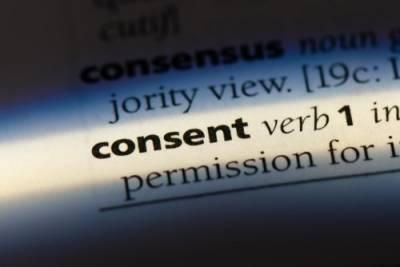Recent Blog Posts
Does My Texas Criminal Record Qualify For Expunction?
 Being arrested and charged with a crime that you did not commit can be damaging in many ways. You may have trouble obtaining employment and finding a place to live as many employers and landlords perform background checks. Fortunately, Texas law allows for some arrests and charges to be removed from a person’s criminal record through the process of expunction. If you are unsure whether you qualify for an expunction, you should speak with a skilled Texas expunction lawyer to discuss your situation.
Being arrested and charged with a crime that you did not commit can be damaging in many ways. You may have trouble obtaining employment and finding a place to live as many employers and landlords perform background checks. Fortunately, Texas law allows for some arrests and charges to be removed from a person’s criminal record through the process of expunction. If you are unsure whether you qualify for an expunction, you should speak with a skilled Texas expunction lawyer to discuss your situation.
Qualifying for an Expunction
In many ways, Texas’ expunction statute is not very expansive. In fact, it is actually rather limited. You cannot file a petition for expunction if your arrest and/or charge ended in a conviction or if you received community supervision for any offense other than a Class C misdemeanor. A criminal record is also ineligible for expunction if the record is related to a probation violation warrant or if you attempted to leave the jurisdiction after you were released on bond.
What is Community Supervision in Texas Criminal Cases?
 When you think of a person being convicted of a crime, you also likely think of them being sentenced to prison to serve out their punishment. In reality, many people who have been charged with low-level and non-violent crimes are found to benefit more and show greater rehabilitation when they are in their communities, rather than in prison. Because of this, many judges prefer to sentence these offenders to probation, which is officially known as community supervision in Texas.
When you think of a person being convicted of a crime, you also likely think of them being sentenced to prison to serve out their punishment. In reality, many people who have been charged with low-level and non-violent crimes are found to benefit more and show greater rehabilitation when they are in their communities, rather than in prison. Because of this, many judges prefer to sentence these offenders to probation, which is officially known as community supervision in Texas.
What is Community Supervision?
Rather than serving out a sentence in prison, a judge may decide that a person’s sentence would be better spent while they were living in and contributing to their own community. If this is the case, a judge may sentence a person to community supervision. If a person is sentenced to community supervision, they will regularly keep in touch with their probation officers, who will help keep them on the right track. Community supervision often comes with requirements that you must abide by and things that you must not do during your supervision period to complete the sentence successfully.
What to Expect After You Are Arrested For a First-Time DWI Offense in Texas
 Being pulled over by the police can be a scary occurrence. It can become even more uncomfortable if the police have a suspicion that you have been driving while intoxicated (DWI). If the police do think you may have been drinking, they will likely ask you to perform a series of tests to determine if you are impaired or not. These tests are not always precise and only work correctly to determine impairment most of the time, rather than all of the time. If you have been arrested for DWI, you do not have to panic, but you should know what to expect from the next steps in the process.
Being pulled over by the police can be a scary occurrence. It can become even more uncomfortable if the police have a suspicion that you have been driving while intoxicated (DWI). If the police do think you may have been drinking, they will likely ask you to perform a series of tests to determine if you are impaired or not. These tests are not always precise and only work correctly to determine impairment most of the time, rather than all of the time. If you have been arrested for DWI, you do not have to panic, but you should know what to expect from the next steps in the process.
Administrative License Revocation (ALR)
The first thing you should know is that you might lose your license through an administrative process, separate from any criminal penalties you may also face. The Administrative License Revocation (ALR) process goes into effect if you refuse to submit to a chemical test to determine your blood-alcohol concentration (BAC) or fail the chemical test by having a BAC of 0.08 percent or higher. A first offense of failing a chemical test results in a 90-day driver’s license suspension, while a first offense of refusing a chemical test results in a 180-day driver’s license suspension.
Understanding Consent and Sexual Assault Crimes in Texas
 In 2017, the #MeToo movement exploded on social media, encouraging those who have experienced sexual assault to share their stories. In the years since, the #MeToo movement has sparked a wave of change in many states as to how they define, charge and prosecute sexual assault offenses. In many cases, consent has been a hotly debated issue in sexual assault cases. Most states -- Texas included -- have various laws and stipulations pertaining to what consent means, who can give it, and whether or not it is a defense against sexual assault charges.
In 2017, the #MeToo movement exploded on social media, encouraging those who have experienced sexual assault to share their stories. In the years since, the #MeToo movement has sparked a wave of change in many states as to how they define, charge and prosecute sexual assault offenses. In many cases, consent has been a hotly debated issue in sexual assault cases. Most states -- Texas included -- have various laws and stipulations pertaining to what consent means, who can give it, and whether or not it is a defense against sexual assault charges.
What is Consent in Texas?
According to Texas law, sexual assault occurs when a person intentionally and/or knowingly performs a sex act or causes another person to perform a sex act on a person who does not give their consent. Because consent is such a crucial part of sexual assault cases, it is important to understand what consent means. Texas law states that consent is not given if:
What Are the Consequences of a Boating While Intoxicated (BWI) Charge in Texas?
 Now that we are easing into the springtime and soon into summer, more people will be out enjoying the warm weather. Many Texans enjoy spending time out on the water on their boats or other watercraft when the weather is nice, but what starts as a good time can turn into a serious problem if you are drinking while you are operating your boat. Just like driving while intoxicated (DWI), boating while intoxicated, also referred to as a BWI, can carry serious implications. Anyone facing a BWI charge in Texas should consult with a knowledgeable lawyer to discuss their options.
Now that we are easing into the springtime and soon into summer, more people will be out enjoying the warm weather. Many Texans enjoy spending time out on the water on their boats or other watercraft when the weather is nice, but what starts as a good time can turn into a serious problem if you are drinking while you are operating your boat. Just like driving while intoxicated (DWI), boating while intoxicated, also referred to as a BWI, can carry serious implications. Anyone facing a BWI charge in Texas should consult with a knowledgeable lawyer to discuss their options.
What Constitutes a BWI Charge?
Everyone has heard at some point that the legal limit for the amount of alcohol in your blood is 0.08 percent. If you have a blood-alcohol concentration (BAC) above this limit, you are considered to be intoxicated. The same limit also applies to those who are operating a boat. You will be considered to be boating under the influence if you have a BAC of 0.08 percent or higher, or if you have lost your normal mental and/or physical capabilities because of an intoxicating substance.
Everything You Need to Know About the Administrative License Revocation (ALR) Process in Texas DWI Cases
 In recent years, more focus has been placed on catching those who choose to drive while intoxicated (DWI) and preventing it from happening in the first place. In Texas, one of the programs that has been implemented as a deterrent for people to avoid drinking and driving is the Administrative License Revocation (ALR) program. Like in most other states, you can lose your driver’s license in Texas through an administrative process if you are arrested for DWI under certain circumstances. If you are facing administrative penalties relating to a DWI, sometimes known in other jurisdictions as a DUI, a DWI defense attorney can help you understand your options.
In recent years, more focus has been placed on catching those who choose to drive while intoxicated (DWI) and preventing it from happening in the first place. In Texas, one of the programs that has been implemented as a deterrent for people to avoid drinking and driving is the Administrative License Revocation (ALR) program. Like in most other states, you can lose your driver’s license in Texas through an administrative process if you are arrested for DWI under certain circumstances. If you are facing administrative penalties relating to a DWI, sometimes known in other jurisdictions as a DUI, a DWI defense attorney can help you understand your options.
The ALR Process and Implied Consent
If a police officer suspects that you have been drinking and driving, he or she will likely pull you over and request that you perform a series of field sobriety tests. If one of these tests involves a preliminary chemical breath test, you have the right to refuse the test without facing consequences. However, once you have been arrested, you are subject to implied consent. This means you must submit to chemical testing or face the consequences set forth by the state of Texas, which is a driver’s license suspension. Since you have not yet been convicted of DWI, this is not a criminal charge, but rather an administrative process that is separate from the criminal element of your case.
What Are the Different Types of Mortgage Fraud?
 Whereas they were once settled in civil courts, these days white-collar crimes have become increasingly more common as many law enforcement agencies, including the FBI and the CIA, as well as the general public, seek justice for higher-brow financial crimes in which the accused might be bilking hundreds of thousands of dollars or more from their clients or other victims. In the case of mortgage fraud, both white-collar criminals and the average person might be accused of it.
Whereas they were once settled in civil courts, these days white-collar crimes have become increasingly more common as many law enforcement agencies, including the FBI and the CIA, as well as the general public, seek justice for higher-brow financial crimes in which the accused might be bilking hundreds of thousands of dollars or more from their clients or other victims. In the case of mortgage fraud, both white-collar criminals and the average person might be accused of it.
Mortgage Fraud Defined
Mortgage fraud, a type of financial institution fraud (FIF), is defined by the Federal Bureau of Investigation (FBI) as: “Some type of material misstatement, misrepresentation, or omission in relation to a mortgage loan that is then relied upon by a lender.” This deceptive practice of mortgage fraud then causes the bank to make a decision about the loan that could be in the favor of the offender even though he/she used deceptive means to influence such a decision.
Substances Other Than Alcohol That Lead to DWI Arrests
 To many people, the assumption has always been that being pulled over for driving while intoxicated (DWI) was almost always the result of driving after drinking one-too-many alcoholic beverages. While that might be the most common reason for being charged and even convicted for DWI, the truth is that there are plenty of other legitimate reasons you might be pulled over for DWI and yet not have to deal with a breathalyzer or another blood alcohol concentration (BAC) level test, among other things. That is because the most critical element of a DWI arrest is proof of impairment, and impairment is not just caused by alcohol. Here are some other reasons you might be pulled over for DWI due to impairment.
To many people, the assumption has always been that being pulled over for driving while intoxicated (DWI) was almost always the result of driving after drinking one-too-many alcoholic beverages. While that might be the most common reason for being charged and even convicted for DWI, the truth is that there are plenty of other legitimate reasons you might be pulled over for DWI and yet not have to deal with a breathalyzer or another blood alcohol concentration (BAC) level test, among other things. That is because the most critical element of a DWI arrest is proof of impairment, and impairment is not just caused by alcohol. Here are some other reasons you might be pulled over for DWI due to impairment.
All the Ways You Might Be Impaired While Driving
A recent NHTSA report suggests that nearly 20 percent of all drivers might be impaired by any number of substances at any given time. For example, in addition to alcohol, you might experience some type of impairment if you are using any one or a mix of the following substances:
What Does “Failure to Stop and Render Aid” Mean in Texas?
 With regards to criminal law, a basic fact is that misdemeanors are not as serious as felonies. That is why a crime such as failure to stop and render aid (FSRA) can be considered a felony and has even been elevated to a more serious offense than it used to be within the last decade. If you were to review this charge by its wording alone, you might assume it is merely about being a good Samaritan. However, it is actually much more serious than that. Essentially, “failure to stop and render aid” means you did not follow the law in how you dealt with what seems to be a hit-and-run accident, be it one that involved people, damage to other cars, or damage to property. Here are further details about the definition of FSRA and its associated penalties when someone is injured or killed.
With regards to criminal law, a basic fact is that misdemeanors are not as serious as felonies. That is why a crime such as failure to stop and render aid (FSRA) can be considered a felony and has even been elevated to a more serious offense than it used to be within the last decade. If you were to review this charge by its wording alone, you might assume it is merely about being a good Samaritan. However, it is actually much more serious than that. Essentially, “failure to stop and render aid” means you did not follow the law in how you dealt with what seems to be a hit-and-run accident, be it one that involved people, damage to other cars, or damage to property. Here are further details about the definition of FSRA and its associated penalties when someone is injured or killed.
FSRA Defined
Regarding the most serious of the duties following an accident, the FSRA law, or those duties after a serious accident involving personal injury or death as noted in Sec. 550.021 of the Texas State Transportation Code, people must meet all of the following requirements if they are to be absolved of any FSRA allegations:
What Are the Differences Between Federal and State Drug Charges?
 In Texas, for the most part, state drug charges signify severe penalties, more so than many other states. In some cases, the penalties can be steeper than those for federal drug charges. Since drug charges are common in criminal defense—and you never know when you or someone you care about might need to hire a criminal defense attorney to assist with such charges, it is worth knowing the differences between the state drug charges in Texas and federal drug charges. Essentially, there are three main differences between state drug charges and federal drug charges:
In Texas, for the most part, state drug charges signify severe penalties, more so than many other states. In some cases, the penalties can be steeper than those for federal drug charges. Since drug charges are common in criminal defense—and you never know when you or someone you care about might need to hire a criminal defense attorney to assist with such charges, it is worth knowing the differences between the state drug charges in Texas and federal drug charges. Essentially, there are three main differences between state drug charges and federal drug charges:
- Drug Classifications
- Methods of Prosecution
- Penalties/Punishments for Convictions
Drug Classifications and Their Associated Penalties
Texas law categorizes drugs differently than the federal government does. Inherent in both their classifications and definitions of drug types are the associated penalties and punishments. With regards to classifications, the federal government organizes drugs according to “schedule” types:





